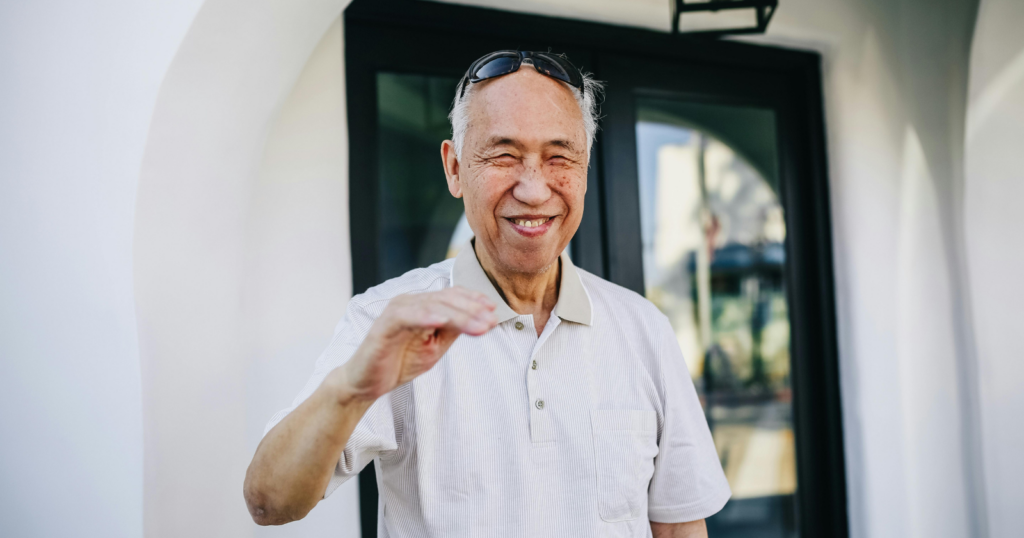People sometimes ask me how I’ve managed to stay so energized and sharp in my 60s.
The truth? It’s not about expensive routines or pretending age doesn’t matter. It’s about a few simple habits—subtle, steady ones—that quietly make a big difference over time.
I’ve noticed the same patterns in others who are aging well. They’re not trying to turn back the clock—they’re just living in a way that keeps them curious, active, and clear-headed.
Here are five of those habits.
They’ve worked for me. They might work for you too.
1. They view aging as an adventure rather than a decline
Here’s something that might surprise you: your attitude toward getting older could literally add years to your life.
A study by Yale psychologist Becca Levy examined how elderly Ohio residents felt about getting older. The research found that people who had more optimistic views about aging tended to live about seven and a half years longer than those with negative attitudes.
Think about that for a moment—seven and a half years!
I’ve seen this firsthand. My neighbor, who’s pushing seventy-five, still talks about “what she wants to be when she grows up.” She approaches each decade like it’s a new chapter filled with possibilities, not a countdown to irrelevance.
Meanwhile, I know others who started talking about being “over the hill” at fifty and seem to have aged accordingly.
The people who stay youthful don’t deny that they’re aging—they just refuse to see it as something that’s happening to them. Instead, they see it as something they’re actively participating in, shaping how the story unfolds.
2. They prioritize movement as medicine
I can’t tell you I have all the answers, but I’ve noticed something consistent among the most vibrant older adults I know: they treat exercise like a prescription, not a punishment.
These folks aren’t necessarily running marathons or pumping iron at the gym (though some are). They’re the ones who take the stairs, park farther away, or suggest walking meetings. They garden, they dance, they chase grandchildren around the yard. Movement is woven into their daily fabric so seamlessly that it doesn’t feel like “working out.”
Experts support this practice as well. Linda P. Fried, who heads Columbia University’s Mailman School of Public Health, has described physical activity as nearly miraculous in its ability to fight age-related decline, calling it the nearest thing to a “magic pill” we have for addressing aging’s impact.
3. They maintain genuine curiosity about the world
Walk into any bookstore and you’ll spot them—the silver-haired folks browsing new releases, not just reminiscing about the “good old days.” They’re the ones asking questions, learning new skills, and engaging with ideas that challenge their assumptions.
This isn’t about being an intellectual show-off. It’s about maintaining that childlike wonder that keeps your mind flexible and engaged. They’re taking cooking classes, learning languages, exploring new neighborhoods, or diving deep into subjects they never had time for during their career-building years.
I remember reading somewhere that Winston Churchill took up painting at age forty and continued creating art well into old age. He approached it with the enthusiasm of a beginner, never worried about whether he was “good enough.” That’s the mindset I’m talking about.
The most youthful people I know treat the world like an ongoing classroom. They ask follow-up questions during conversations, they’re genuinely interested in other people’s perspectives, and they’re not afraid to admit when they don’t know something.
4. They invest in relationships across generations
Here’s something I’ve observed: the people who stay young at heart don’t just hang out with people their own age. They cultivate friendships and connections across different generations, bringing fresh energy and perspective into their lives.
They’re the grandparents who actually listen to their grandchildren’s music (and sometimes discover they like it). They’re mentoring younger colleagues or volunteering with young people. They’re not trying to be trendy or “hip”—they’re genuinely interested in connecting with others, regardless of age.
This cross-generational mixing keeps them current without losing their wisdom. They learn new ways of thinking while sharing their experience. It’s a beautiful exchange that benefits everyone involved.
5. They practice selective nostalgia
Now this might sound contradictory after what I just said about staying current, but hear me out. The people who age most gracefully have mastered the art of selective nostalgia. They cherish meaningful memories without getting trapped in them.
They’ll tell you stories about “the good old days,” but they won’t insist that everything was better back then. They can appreciate how things have improved while still valuing what was special about earlier times. They don’t spend their energy complaining about how the world has changed—they adapt and find ways to thrive in it.
As I covered in a previous post, there’s real wisdom in learning from the past without being imprisoned by it. The key is choosing which memories to revisit and which ones to learn from versus which ones to leave behind.
These folks have learned to be grateful for their experiences without needing to relive them constantly. They use their past as a foundation, not a ceiling.
The compound effect of small choices
What strikes me most about these habits is how subtle they are. None of them require dramatic lifestyle changes or significant financial investment. They’re quiet, consistent choices that build on each other over time.
The woman who walks her dog every morning isn’t just getting exercise—she’s also practicing curiosity about her changing neighborhood, staying connected with other dog owners of all ages, and maintaining a positive routine that reinforces her sense of purpose.
The man who takes a community college class isn’t just learning—he’s also exercising his brain, meeting new people, and proving to himself that growth doesn’t stop at retirement.
These habits work together, creating a lifestyle that naturally promotes vitality and engagement. They’re not trying to turn back the clock—they’re making the most of the time they have.
So here’s my question for you: which of these resonates most? Maybe it’s time to take that class you’ve been thinking about, or to start viewing your daily walk as an adventure rather than a chore.
After all, staying youthful isn’t about denying your age—it’s about refusing to let age define your possibilities.
















